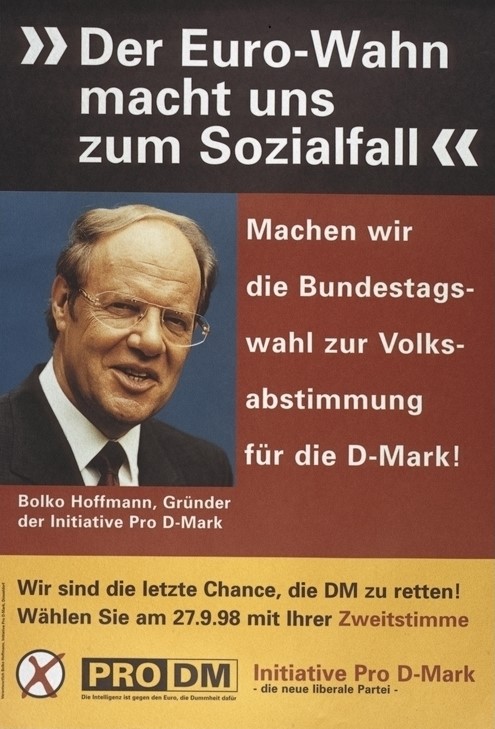Source

Source: Bildarchiv, B 145 Plak 009-009-085 REGIERUNGonline
The German government supported the planned European Economic and Monetary Union, even though the majority of the German population opposed replacing the Deutschmark with the Euro. Efforts to prevent the introduction of the Euro remained marginal, however. For example, Bolko Hoffmann (below), who had made millions as a stock market speculator, advertising agency head, and publisher, founded the “Initiative Pro D-Mark” party at the end of April 1998 in Düsseldorf. The initiative described itself as a new “liberal” party but advanced mostly right-wing populist views. Its primary goal was to prevent the adoption of the common European currency, the Euro, and to preserve the Deutschmark. The party did not succeed in persuading Eurosceptics and protest voters to support the “Initiative Pro D-Mark” at the polls: In the 1998 Bundestag election, it received only 0.9 percent of the vote. The photograph shows an “Initiative Pro D-Mark” poster with a portrait of Bolko Hoffmann and an appeal to voters in 1998 Bundestag elections. The text reads: “The Euro-craze will turn us into a welfare case. Let’s make the Bundestag elections a referendum on the Deutschmark. We are the last chance to save the Deutschmark. Use your second vote on September 27, 1998.”

Source: Bildarchiv, B 145 Plak 009-009-085 REGIERUNGonline